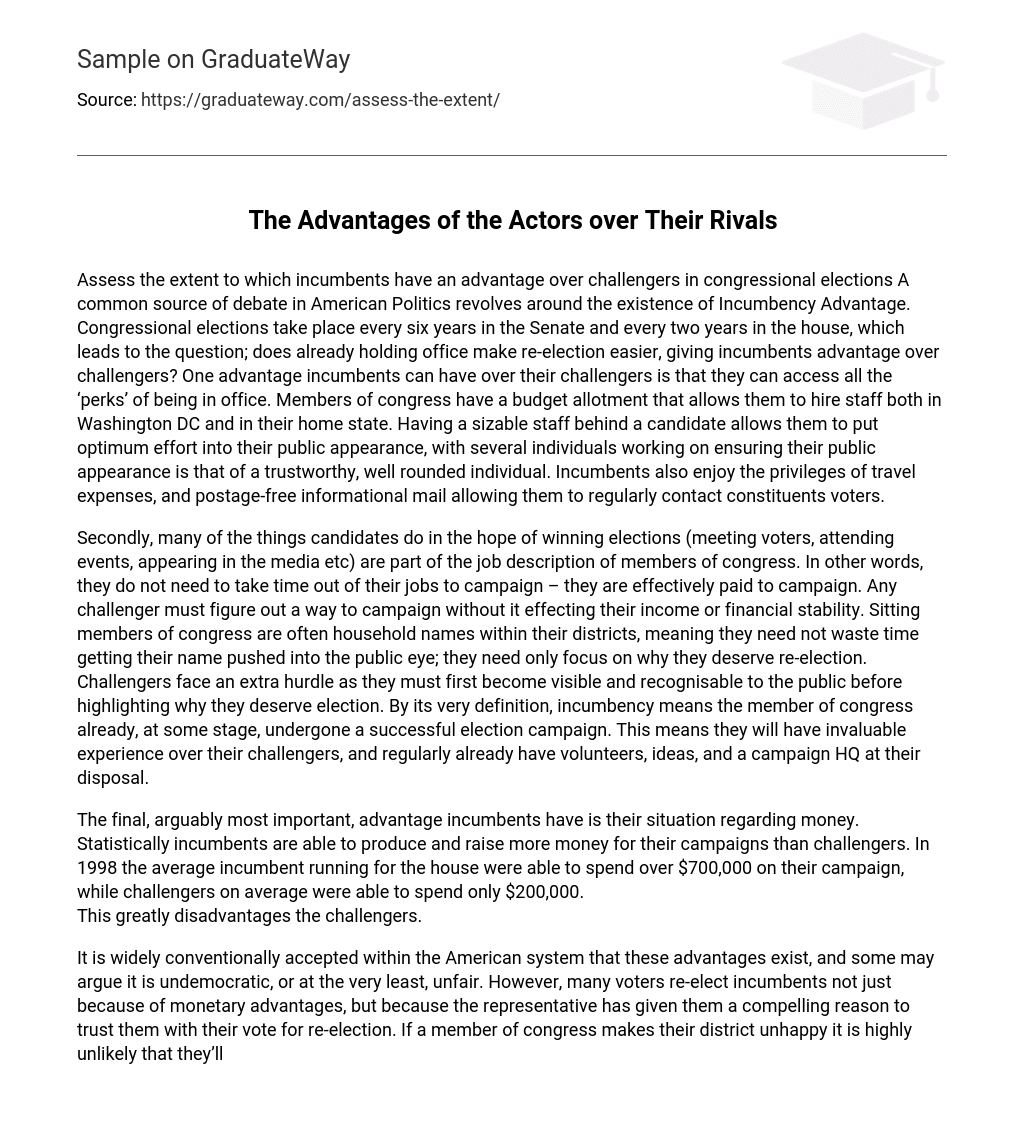Assess the extent to which incumbents have an advantage over challengers in congressional elections A common source of debate in American Politics revolves around the existence of Incumbency Advantage. Congressional elections take place every six years in the Senate and every two years in the house, which leads to the question; does already holding office make re-election easier, giving incumbents advantage over challengers? One advantage incumbents can have over their challengers is that they can access all the ‘perks’ of being in office. Members of congress have a budget allotment that allows them to hire staff both in Washington DC and in their home state. Having a sizable staff behind a candidate allows them to put optimum effort into their public appearance, with several individuals working on ensuring their public appearance is that of a trustworthy, well rounded individual. Incumbents also enjoy the privileges of travel expenses, and postage-free informational mail allowing them to regularly contact constituents voters.
Secondly, many of the things candidates do in the hope of winning elections (meeting voters, attending events, appearing in the media etc) are part of the job description of members of congress. In other words, they do not need to take time out of their jobs to campaign – they are effectively paid to campaign. Any challenger must figure out a way to campaign without it effecting their income or financial stability. Sitting members of congress are often household names within their districts, meaning they need not waste time getting their name pushed into the public eye; they need only focus on why they deserve re-election. Challengers face an extra hurdle as they must first become visible and recognisable to the public before highlighting why they deserve election. By its very definition, incumbency means the member of congress already, at some stage, undergone a successful election campaign. This means they will have invaluable experience over their challengers, and regularly already have volunteers, ideas, and a campaign HQ at their disposal.
The final, arguably most important, advantage incumbents have is their situation regarding money. Statistically incumbents are able to produce and raise more money for their campaigns than challengers. In 1998 the average incumbent running for the house were able to spend over $700,000 on their campaign, while challengers on average were able to spend only $200,000.
This greatly disadvantages the challengers.
It is widely conventionally accepted within the American system that these advantages exist, and some may argue it is undemocratic, or at the very least, unfair. However, many voters re-elect incumbents not just because of monetary advantages, but because the representative has given them a compelling reason to trust them with their vote for re-election. If a member of congress makes their district unhappy it is highly unlikely that they’ll enjoy re-election, regardless of how much money they throw at their campaign.





